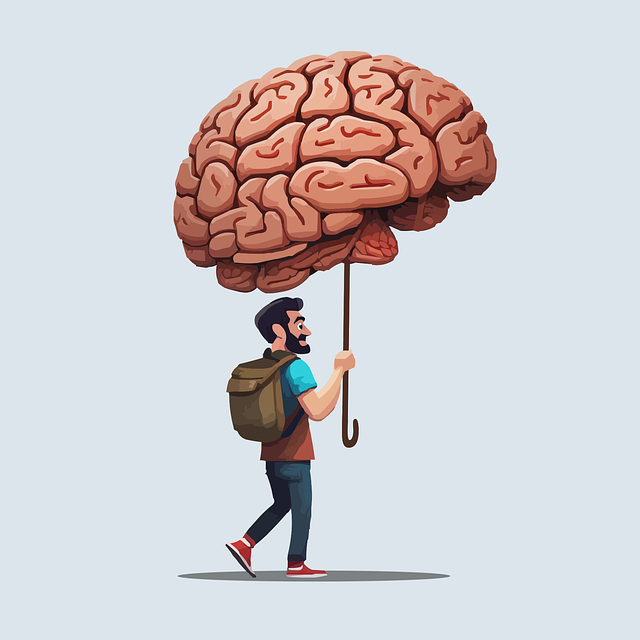Mental health professionals navigating complex Therapy for Adults with ADD/ADHD Evaluations face unique challenges, from managing diverse client needs to preventing burnout. A comprehensive approach integrating stigma reduction, crisis intervention guidance, and stress reduction methods is essential. This includes assessing emotional regulation, relationship stability, and co-morbid conditions while adhering to ethical standards. Continuous education, empathy building, and resilience practices are vital for creating safe, nurturing environments, enhancing well-being, and ultimately improving client outcomes.
Mental health professionals face unique challenges and risks in their practice, especially when treating complex conditions like Adult ADD/ADHD. This article delves into the critical aspect of risk assessment, exploring the specific dangers within mental health care. We examine factors influencing risk in ADHD therapy, ethical considerations, and effective management strategies. Additionally, continuous education and professional development are highlighted as essential tools for mitigating risks associated with Therapy for Adults ADD-ADHD evaluations.
- Understanding the Unique Risks in Mental Health Practice
- Assessing Risk Factors for Adult ADD/ADHD Patients
- Ethical Considerations in Therapy: A Comprehensive Look
- Implementing Risk Management Strategies Effectively
- Continuous Education and Professional Development for Mitigation
Understanding the Unique Risks in Mental Health Practice

Mental health professionals often encounter unique risks and challenges within their practice. These include managing complex patient cases, such as those involving therapy for adults with ADD-ADHD or requiring evaluations for severe mental health disorders. The dynamic nature of mental health means professionals must constantly adapt to each client’s individual needs, which can be both rewarding and stressful.
In addition to the inherent complexities, these practitioners are also at risk of burnout, a significant issue in the field. Burnout prevention strategies, including effective crisis intervention guidance and stress reduction methods, are essential tools for maintaining professional resilience. By prioritizing these aspects, mental health professionals can enhance their well-being and, consequently, provide better care to their clients.
Assessing Risk Factors for Adult ADD/ADHD Patients

When assessing risk factors for adult ADD/ADHD patients, mental health professionals must consider a multifaceted approach that goes beyond traditional diagnostic criteria. Beyond the core symptoms of inattention and hyperactivity, therapists should delve into the patient’s emotional regulation abilities, as difficulties in this area can significantly impact daily functioning and pose potential risks. Evaluations should explore how these individuals manage stress, cope with setbacks, and maintain stable relationships—all crucial aspects that contribute to overall mental well-being.
Therapy for adults with ADD/ADHD often involves addressing co-occurring conditions like anxiety or depression, which can exacerbate symptoms and complicate emotional healing processes. By integrating mental illness stigma reduction efforts into the therapeutic framework, practitioners create a safe space for patients to openly discuss challenges and setbacks without fear of judgment. This supportive environment fosters trust, encouraging individuals to actively participate in their emotional healing processes and make informed decisions regarding treatment plans.
Ethical Considerations in Therapy: A Comprehensive Look

Mental health professionals face a unique set of ethical considerations when providing therapy, especially when dealing with complex conditions like Adult ADD/ADHD. As they navigate the intricate landscape of their clients’ minds, it’s paramount to uphold the highest standards of integrity and professionalism. This involves ensuring informed consent, maintaining confidentiality, and addressing potential conflicts of interest. Therapists must also be vigilant in their assessment processes, carefully differentiating between co-morbid conditions that may complicate treatment plans.
The ethical framework further extends to the professional’s own well-being. Effective therapy relies on practitioners implementing robust stress reduction methods and self-care practices to mitigate burnout. This is essential for maintaining objectivity and providing trauma support services with empathy and competence, particularly when dealing with clients grappling with adversity. The intricate dance between therapist and client demands a balanced approach that prioritizes both the professional’s ethical obligations and their own mental health.
Implementing Risk Management Strategies Effectively

Implementing effective risk management strategies is paramount for mental health professionals to ensure safe and nurturing environments for their clients. This involves a multifaceted approach tailored to individual needs, especially when working with adults struggling with ADD/ADHD. Regular therapy sessions can provide a structured framework, incorporating techniques like mental wellness journaling and exercise guidance, to help patients manage symptoms and promote self-awareness. Additionally, training in conflict resolution techniques and compassion cultivation practices is invaluable for professionals to handle challenging situations with empathy and professionalism.
Professionals should also be adept at recognizing early signs of escalating risks, such as sudden changes in client behavior or communication. Prompt intervention using evidence-based strategies can prevent potential crises. By integrating these risk management techniques into their practice, therapists create a safe space for clients to explore their mental health issues while fostering resilience and adaptability.
Continuous Education and Professional Development for Mitigation

Mental health professionals must continually invest in their professional development to mitigate risks and deliver high-quality care. Continuous education plays a pivotal role in staying updated with the latest research, therapeutic techniques, and best practices in the field. By participating in workshops, seminars, and online courses focused on areas like Therapy for Adults with ADD/ADHD Evaluations, professionals can enhance their skills and knowledge. This ensures they remain adept at diagnosing and treating complex conditions effectively.
Moreover, incorporating Empathy Building Strategies into their toolkit is essential. Developing strong emotional intelligence and empathy allows professionals to connect more deeply with clients, fostering a safe and supportive environment. Equally important are Stress Management and Emotional Regulation techniques; these tools help professionals maintain resilience and prevent burnout while navigating the demanding nature of mental health work.
Mental health professionals face unique challenges, particularly when treating patients with Adult ADD/ADHD. Effective risk assessment is crucial to ensuring safe and ethical therapy practices. By understanding specific risk factors, adopting robust risk management strategies, and engaging in continuous professional development, therapists can enhance patient outcomes while mitigating potential harms. Regularly reviewing these key aspects—from identifying risk elements to ongoing education—is essential for maintaining a high standard of care in the field, especially when dealing with complex conditions like Adult ADD/ADHD. This comprehensive approach ensures therapy remains a supportive and beneficial journey for both practitioners and their clients.










